As technology advances rapidly, the issue of managing electronic waste, also known as e-waste, has become a critical concern for businesses of all sizes and industries. The staggering statistics surrounding e-waste highlight the urgent need for effective e-waste management solutions. According to a report by the United Nations, over 50 million tons of e-waste are generated globally each year, making it the fastest-growing waste problem in the world. In response to this challenge, businesses must prioritize corporate responsibility and implement sustainable practices for electronics recycling.
Educating and Engaging Employees
One of the key aspects of corporate responsibility in electronics recycling is educating and engaging employees. By raising awareness about the issue of e-waste and its impact, companies can foster a culture of environmental responsibility within their organization. Here are some strategies to consider:
1. Share Compelling E-Waste Statistics and Information
To raise awareness among employees, sharing compelling statistics and information about e-waste is essential. Highlight the environmental and social impact of improper e-waste disposal, emphasizing the need for responsible recycling practices.
2. Conduct Workshops and Training Programs
Organize workshops and training programs to educate employees on properly handling, disposing of, and recycling electronic devices. These programs can provide valuable information about the potential hazards of e-waste and the importance of responsible recycling.
3. Establish Clear Policies and Guidelines
Establish company policies aligned with local regulations and make them easily accessible to employees. These policies should outline the proper procedures for disposing of electronic devices and emphasize the importance of recycling.
4. Set Up Convenient Collection Points
Make it easy for employees to recycle their old electronic devices by setting up convenient collection points within the workplace. This encourages employees to participate in responsible e-waste management and reduces the likelihood of devices ending up in landfills.
5. Involve Employees in Decision-Making
Engage employees in decision-making processes related to e-waste management. Encourage them to provide suggestions and ideas for improving recycling practices within the organization. This empowers employees and fosters a sense of ownership and commitment to environmental responsibility.
6. Communicate Progress and Updates
Keep employees informed about the progress of e-waste management initiatives, milestones achieved, and any changes in e-waste regulations. Regular communication helps maintain employee engagement and ensures transparency throughout the process.
Partnering with Responsible E-Waste Management Companies
In addition to educating and engaging employees, businesses can enhance their corporate responsibility in electronics recycling by partnering with companies specializing in e-waste management solutions. These partnerships can help ensure that electronic devices are disposed of responsibly and safely. Here are some key considerations when choosing a partner:
1. Assess Usability of Old Technology
Before disposing of old technology, assess its potential usability. Determine if the devices can be refurbished, upgraded, or repurposed for continued use within your organization. This not only reduces waste but also helps save costs and promotes sustainability.
2. Secure Data Wiping
Ensure all sensitive information is securely erased from the devices before transferring them to e-waste management companies. Data wiping is crucial to protect confidential data and prevent potential security breaches.
3. Collaborate with Local IT Companies
Collaborate with local IT companies that specialize in refurbishing electronic devices. Explore options for upgrading and reusing the devices within your organization, reducing costs, and promoting sustainability. By partnering with local companies, you contribute to the growth of the local economy and support responsible e-waste management practices.
4. Consider IT Asset Disposition (ITAD) Companies
Consider partnering with IT asset disposition (ITAD) companies focusing on responsible e-waste recycling management and refurbishment processes. These companies have the expertise and resources to handle electronic devices in an environmentally friendly manner.
5. Explore Charitable Donations
If the refurbished devices are unsuitable for in-house use, consider donating them to charitable organizations. Connect with companies that work with underprivileged individuals or educational institutions needing access to technology. Donating devices contributes to social welfare and bridges the digital divide.
Minimizing Unnecessary Purchases
Another aspect of corporate responsibility in electronics recycling is minimizing unnecessary purchases. Businesses can reduce waste and promote sustainability by understanding functional needs and making informed purchasing decisions. Here are some strategies to consider:
1. Understand Functional Needs
Engage with employees to understand their specific functional requirements for electronic devices. Identify the essential features and capabilities needed to perform job functions effectively.
2. Purchase Only What is Needed
Prioritize purchasing electronics that align with employees’ functional needs, avoiding unnecessary or redundant features. Businesses can minimize waste generation by ensuring that the selected devices will be actively used.
3. Consider Cost Savings and Resource Efficiency
Minimizing unnecessary purchases reduces waste and saves costs associated with acquiring and managing electronic devices. By investing in devices that meet functional requirements, businesses can allocate resources more efficiently and improve cost-effectiveness.
4. Contribute to Waste Reduction and the Circular Economy
Minimizing unnecessary purchases decreases the volume of electronic waste generated. By promoting responsible purchasing practices, businesses contribute to a circular economy by extending the lifespan of devices and reducing the demand for new ones.
5. Align with Environmental Sustainability Goals
Conscious purchasing decisions align with environmental sustainability goals. By considering the environmental impact of electronic devices and prioritizing sustainable options, businesses can reduce energy consumption, conserve resources, and minimize their overall environmental footprint.
By embracing corporate responsibility and implementing sustainable practices in electronics recycling, businesses can make a significant difference in mitigating the environmental impact of e-waste. Through education, engagement, responsible partnerships, and mindful procurement practices, organizations can contribute to a greener, cleaner world while also enhancing their reputation and long-term success. Contact evTerra Recycling today to explore their eco-friendly e-waste recycling services and join the movement towards a more sustainable future.

